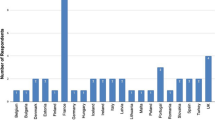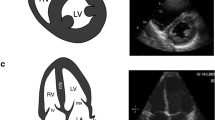Abstract
Purpose of Review
The purpose this manuscript is to describe the work of one program in Kenya, East Africa, to train general surgery residents in urology to make available the much needed service to the underserved rural population.
Recent Findings
People in developing countries continue to face the challenge of accessing surgical care with a ratio of 1 surgeon to 20,000 people. This is due, in part, to the inadequate number of trained surgeons. The availability of specialized surgical care such as urology is even more unlikely due to fewer numbers of specialists in urology. Such disciplines take many years of training before a person qualifies as a specialist. This requires highly motivated and suitable candidates who are willing to spend time in training and acquiring skills as well as proper infrastructure for training. There is an effort to train general surgical residents in enhanced skills to make available urology services to the wider population. This involves equipping them with skills in general urology, basic skills in handling endoscopic equipment, and basic endo-urology procedures such as diagnostic cystoscopy with or without biopsy and direct vision urethrotomy (DVU). The residents are also exposed to visiting faculty through international collaborations, surgical camps, and workshops to enhance their skills and knowledge.
Summary
Equipping general surgical residents with urology skills will greatly reduce the shortage of these services to the people of developing countries.
Similar content being viewed by others
References
Papers of particular interest, published recently, have been highlighted as: • Of importance •• Of major importance
•• CMDA (2018). PAACS general surgery overview. Retrieved 7/22/2018, 2018, from https://www.paacs.net/about_paacs/purpose/. This organization serves as the most successful example of a non-governmental organization with a systematic plan and strategy to meet the surgeon shortage in Africa, using African surgeons in partnership with foreigners.
•• de Vries CR, Price RR. Global surgery and public health: a new paradigm. Ontario, Canada: Jones and Bartlett Publishing, 2012. This book is an excellent primer on meeting the challenges of caring for surgical patients in developing countries.
•• Hsia RY, Mbembati NA, Macfarlane S, Kruk ME. Access to emergency and surgical care in sub-Saharan Africa: the infrastructure gap. Health Policy Plan. 2012. This reference highlights the state of infrastructure and how it impacts on surgical services delivery.;27:234–44.
•• Bergstrom S, McPake B, Pereira C, et al. Workforce innovations to expand the capacity for surgical services. In: Debas H, Donkor P, Gawande A, et al., editors. Essential surgery: disease control priorities. 3rd ed. Washington, DC: The World Bank; 2015. A well-researched and widely referenced chapter that serves as a starting point for systems and ideas that have already been implemented.
• Frankel JK, Murphy GP. International volunteerism and urethral disease: a review. Transl Androl Urol. 2018;7(4):659–65. https://doi.org/10.21037/tau.2018.02.04. This reference emphasizes the point that reliance on international relief aid to help in deal with the surgical needs in underdeveloped countries is not sustainable in the long run.
United Nations Department of Economic and Social Affairs: Population Division. 2017. http://www.unpopulation.org.
• Neely D, Feinglass J, Wallace WH. Developing a predictive model to assess applicants to an internal medicine residency. J Grad Med Educ. 2010. Highlights the importance of ranking applicants to assess their suitability for the training program.;2:129–32.
• Bello JO. Impact of preoperative patient characteristics on post urethroplasty recurrence: the significance of stricture length and prior treatments. Niger J Surg. 2016;22(2):86–9. This is a very recent paper in in the management of urethral stricture, a common urological condition, in the region and the changing pattern and complexity of the strictures.
• Mugalo, EL, Bwombengi, SO, Ayuo, PO. Aetiology of Urethral strictures at Moi Teaching and Referral Hospital. Ann Afr Surg. 2013;10:11–4. This paper gives a glimpse of urethral stricture disease at Moi Teaching and Referral Hospital home of the program under discussion.
• Ahmed K, Jawad M, Dasgupta P, Darzi A, Athanasiou T, Khan MS. Assessment and maintenance of competence in urology. Nat Rev Urol. 2010. This paper describes importance having a tool for assessment of residents being recruited for a training program.;7:403–13.
Jason K. Frankel, Gregory P. Murphy. International Volunteerism and Urethral stricture disease: a review. Translational Andrology and Urology. 2018;7(4). • This reference emphasizes the point that reliance on international relief aid to help in deal with the surgical needs in underdeveloped countries is not sustainable in the long run.
Author information
Authors and Affiliations
Corresponding author
Ethics declarations
Conflict of Interest
Dr. Edward Mugalo and Dr. Charles Powell declare that they have no conflict of interest.
Human and Animal Rights and Informed Consent
This article does not contain any studies with human or animal subjects performed by any of the authors.
Additional information
This article is part of the Topical Collection on Neurogenic Bladder
Rights and permissions
About this article
Cite this article
Mugalo, E.L., Powell, C.R. Challenges of Training General Surgery Residents to Do Urology in the Developing World. Curr Bladder Dysfunct Rep 13, 234–237 (2018). https://doi.org/10.1007/s11884-018-0494-z
Published:
Issue Date:
DOI: https://doi.org/10.1007/s11884-018-0494-z




